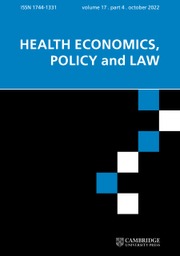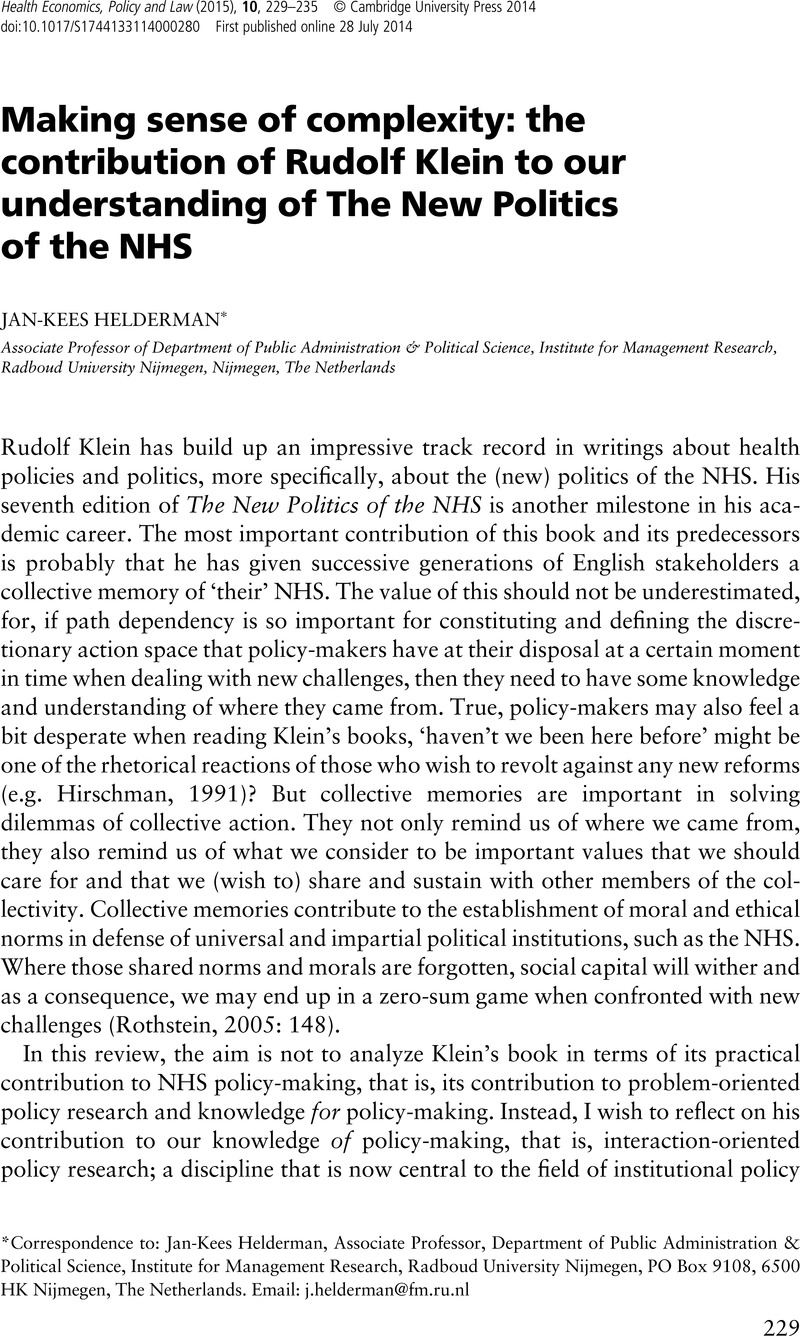Crossref Citations
This article has been cited by the following publications. This list is generated based on data provided by Crossref.
Powell, Martin
2016.
Reforming a Health Care System in a Big Way? The Case of Change in the British NHS.
Social Policy & Administration,
Vol. 50,
Issue. 2,
p.
183.



